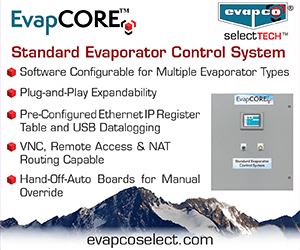IIAR Chapters Installation Project: Good News from the International Committee
BY ADOLFO BLASQUEZ PE, IIAR INTERNATIONAL COMMITTEE CHAIR
Because we are always looking to make the information that we produce available to a greater number of end users for the benefit of our industry, the International Committee, following the direct request of our IIAR Chairman, Marcos Braz, has initiated the IIAR Chapters Implementation Project worldwide.I’ve entrusted Federico Alarcón, the Latin America Project Administrator, with the task of designing a methodology to accomplish this goal.
He submitted a document covering two necessities: serving as a guide for setting up chapters and serving as an agreement to be signed by those members who are willing to join the chapter´s executive committee.
Under this plan, those members would commit to the implementation and operation of the chapter. In this way the “Agreement-Guide for Setting Up IIAR Chapters” emerged.
It is useful to note how we will define our chapters:
“A chapter is a formal representation of IIAR outside the United States and in countries where there are members of any category willing to come together to organize activities promoting our principal task: education.”
Due to our successful experience with this country in 2013, it was recommended that we begin with Costa Rica.
In a productive trip where we had the opportunity to interview a number of our IIAR members, government authorities and academics; we decided that the Chapter based in Costa Rica should be responsible for all of Central America and the Caribbean. We now have an agreement from a committee that is already meeting to develop their annual plan.
Efforts are well on their way to reproduce this experience in Ecuador, Peru and Mexico in the short term; and in Argentina, Chile, Uruguay and Colombia in the medium term.
While Federico is managing the chapter development efforts in the Spanish speaking countries of the Western Hemisphere, Chris Combs, the International Programs Director, is taking the lead in what has been termed the continental region.
These regions include Brazil, the only Portuguese speaking country in South America, and the rest of the countries outside the United States and Latin America.
He is currently working with Samir Shah, the International Committee’s Regional Vice Chair (RVC) for India and South Asia, on forming chapters in India.
Samir has already identified individuals in five major Indian cities interested in forming chapters. They will conduct meetings with interested parties at the upcoming ACREX show in Bangalore.
Beyond India, Chris has made arrangements for a meeting in Dubai with interested parties from the industrial ammonia refrigeration sector based in the United Arab Emirates, and, in the coming months, plans to reach out further to members in the Africa and Middle East regions as well as Brazil to arrange for the establishment of additional IIAR International Chapters.
We also aim to carry the project further east, especially to China, in collaboration with our RVC for China and the Mekong Basin countries, Guy Evon Cloutier, and other members in the region.
Given the vast size as well as the linguistic and cultural diversity of the continental region, we aspire to grow our current network of RVCs and other volunteers to collaborate in establishing Chapters throughout the world.
We welcome new members in regions that have previously had a lower level of participation in IIAR to join the International Committee in its efforts to share safety standards, technical information and training materials offered to IIAR members around the world.
Chris is leading the development of a more detailed manual to establish and outline the operations of IIAR chapters in English and Spanish languages.
There will be a presentation and discussion of this content at the International Committee meeting in San Diego, where we aim to further advance the development of IIAR Chapters.
Through this important program, we intend to increase the IIAR membership and to make more IIAR materials available in order to generate safe operating practices for ammonia and other natural refrigerants used in our industry worldwide.
Without a doubt, an expansion of this type constitutes an enormous challenge for IIAR. In the absence of precedents for this type of growth, we must proceed making the necessary adjustments to perfect our methods. With the goal to expand our international presence; this is clearly good news.













